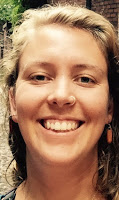One of my jobs right now is as Associate Chaplain for Christian and Interfaith Life at Carleton College. Carleton is a small liberal arts college with about 2000 students. This term, I was asked to convene some sort of grief group, as an alternate or addition to the closed clinical groups offered by the student health center. The group, which we’ve called “The Practice of Grief”, strives to teach participants about practices of grieving from various religious traditions as part of helping expand our own options for living in grief.
I graduated from Carleton a decade ago. Things feel very familiar and recent when I’m on campus, but really, a lot has changed in my life since I was a student. It turns out I had forgotten just how hard it is to grieve a death as a student. With 10-week terms, classes move on quickly and students often feel like they just don’t have time for grieving. On such a small campus, lots of people know what’s going on in one another’s lives, which can be nice and it can also be hard. Depending on how long they’ve been at Carleton, students have also only recently left the support of home, which can bring another kind of grief.
The group has made me even more aware of how in the mostly-white progressive churches I’ve called home, there haven’t been a lot of rituals around grieving. There are funerals or memorial services obviously, which are important. There’s sometimes All Saints Day, which can also be powerful. But there aren’t the rituals of washing the body or of marking someone as a mourner and not expecting them to do anything except grieve for several days, even weeks. There aren’t the special prayers said a year after a death. Learning about these and similar things in other religious traditions has had me yearning for something more.
I’ve long valued ritual, whether connected to religion or not. But I’m more convinced of the importance of rituals in grief, rituals that help us grieve and allow us to continue to mark and recognize and honor grief, however it may manifest. I’m not sure if any of the students who have been in this group so far are going to create their own rituals around grief. I do know that even the ritual of a biweekly space to sit and talk about grief with others who are grieving has the potential to be transformative, or to at least help a little bit. And while I’m curious about other ways to create space for students in the future, for now, I’m glad for this.

Hannah Campbell Gustafson
Hannah Campbell Gustafson and her family recently made a leap of faith and moved to Minneapolis, MN from rural Wisconsin. She is the outreach coordinator at Plymouth Congregational Church. Hannah is treasurer for the Mental Health Network, is trained as a social worker, has an MDiv, and is a Member in Discernment with the Southwest Association of the Wisconsin Conference of the UCC. She and her partner (an ELCA Lutheran pastor) share their lives with their young child Leona and their standard poodle puppy Óscar.
